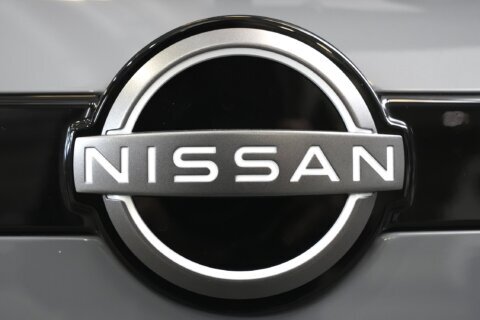Many investors consider the Russell 2000 index the investment industry’s premiere small-cap equity benchmark. The Russell 2000 tracks the overall performance of the 2,000 smallest companies in the Russell 3000 index, which itself includes the 3,000 largest publicly traded U.S. stocks.
The Russell 2000 covers all 11 GICS sectors and a wide range of specific industries. It is not purposefully weighted in favor of any particular sector, but, in its current configuration, it leans toward health care, consumer discretionary and financials.
[Sign up for stock news with our Invested newsletter.]
Small caps tend to outperform when the economy is healthy and growing steadily. Based on slowing inflation and a strong labor market, the Conference Board — an independent organization that tracks the economy and public policy — is optimistic about economic growth in the U.S. If interest rates continue to fall and we avoid a recession, small-cap stocks could thrive.
The performance of the Russell 2000 has lagged behind the technology-heavy Nasdaq-100 and the large-cap S&P 500 index. That underperformance may have created an exceptional buying opportunity by leaving many small-cap stocks undervalued. Also, because they rely heavily on borrowing, small caps can struggle when interest rates are rising. If the Federal Reserve continues to cut rates in 2025, it will be good for this asset class.
While small-cap stocks are attractive to investors with a long-term time horizon, they can be more volatile than large caps or the market as a whole. Rather than attempt to build a comprehensive portfolio of individual small-company stocks, most investors are better served by buying an exchange-traded fund, or ETF, that tracks the Russell 2000.
Russell 2000 ETFs offer enhanced diversification by including substantially all 2,000 stocks in the index and providing the ease and convenience of ETF investing. Here’s a list of seven top-quality Russell 2000 ETFs to consider buying right now:
| ETF | Expense Ratio | Forward Dividend Yield |
| iShares Russell 2000 ETF (ticker: IWM) | 0.19% | 1.1% |
| iShares Russell 2000 Growth ETF (IWO) | 0.24% | 0.6% |
| Vanguard Russell 2000 Index Fund ETF Shares (VTWO) | 0.10% | 1.2% |
| Vanguard Russell 2000 Value Index Fund ETF Shares (VTWV) | 0.15% | 1.7% |
| Direxion Daily Small Cap Bull 3x Shares (TNA) | 1.08% | 0.8% |
| Invesco Russell 2000 Dynamic Multifactor ETF (OMFS) | 0.39% | 1.4% |
| ProShares Russell 2000 Dividend Growers ETF (SMDV) | 0.40% | 2.6% |
iShares Russell 2000 ETF (IWM)
The first ETF on this list is also the largest Russell 2000 ETF on the market. IWM has assets of just under $81 billion, and the fund typically trades more than 20 million shares a day.
The expense ratio of IWM is 0.19%. The fund is designed to be a core small-cap holding for investors looking for comprehensive diversification covering all 11 GCIS sectors.
IWM is not a strict replication fund. According to the fund’s prospectus, IWM must invest at least 80% of its assets in the benchmark, while 20% can be invested in small-cap stocks that don’t necessarily match the index but still effectively replicate the benchmark’s performance.
The current dividend yield for IWM is 1.1%.
iShares Russell 2000 Growth ETF (IWO)
Like IWM, the previous ETF on this list, IWO is a Russell 2000 ETF in the iShares family of funds owned and managed by BlackRock Inc. (BLK). IWO, however, differs from IWM in several important ways. IWO tracks the Russell 2000 Growth Index, which is a subset of the larger Russell 2000. The fund, in concert with the index, screens all of the stocks in the Russell 2000 and only includes those that demonstrate strong growth stock characteristics.
Growth stocks are publicly traded companies that Wall Street believes will grow revenue and earnings at a faster-than-average rate. Over time, the stock’s share price is expected to follow suit.
In simple terms, IWO is a $13 billion ETF that invests in growth stocks that are included in the Russell 2000. It’s the right ETF for investors who understand the importance of growth indicators like superior cash flow and share price momentum. The fund has about 1,100 holdings.
This ETF has an expense ratio of 0.24% and a current dividend yield of 0.6%.
Vanguard Russell 2000 Index Fund ETF Shares (VTWO)
VTWO is the right Russell 2000 ETF for the cost-conscious small-cap investor. Typical of Vanguard index funds, VTWO has a very reasonable cost structure. The fund’s expense ratio comes in at just 0.10%.
The lower fee structure is the main characteristic that differentiates VTWO from other Russell 2000 ETFs operated by large, credible asset managers. The objective of the fund is to replicate the benchmark’s performance after expenses are accounted for. Investors shouldn’t see any significant tracking error from this fund.
VTWO remains fully invested at all times. All settled funds are invested in the index at the earliest opportunity. This $13.2 billion fund uses a full-replication strategy. The dividend yield for VTWO is currently 1.2%.
[9 Controversial Stock Price Predictions for 2025]
Vanguard Russell 2000 Value Index Fund ETF Shares (VTWV)
Value investors interested in small-cap equities should consider VTWV. It’s the smart, cost-efficient choice for investors who understand and appreciate the long-term capital appreciation opportunities that are inherent in value stocks.
VTWV follows the Russell 2000 Value Index. As its name implies, that index is made up of Russell 2000 stocks that are considered undervalued compared to the broad market. The stocks in VTWV tend to have relatively low price-to-earnings ratios, price-to-book ratios and price-to-sales ratios. Those metrics can indicate which stocks have an attractive valuation relative to others in their peer group.
After the fund’s expense ratio of 0.15% is subtracted, the fund should accurately replicate the benchmark’s performance.
The fund currently holds 1,450 stocks. That’s less than the 2,000 stocks in the broader index, but all 11 sectors are represented in the portfolio and the fund offers good industry diversification.
Assets top $886 million and the current dividend yield stands at 1.7%.
Direxion Daily Small Cap Bull 3x Shares (TNA)
TNA is the most aggressive and the most expensive Russell 2000 ETF on this list, it also has the greatest potential for rapid appreciation on a short-term basis.
This $2.6 billion ETF is a leveraged fund. This means it buys securities on margin, uses aggressive tactics and invests in exotic derivative securities to achieve its objective of delivering three times the daily performance of the Russell 2000.
In addition to buying the component stocks of the index, TNA invests in other Russell 2000 ETFs and sophisticated investment contracts called swap agreements. The securities are selected to deliver triple the performance of the index on a given trading day.
Investors considering TNA should keep two things in mind. The first is that while leveraged funds enhance performance on the upside they also exaggerate the downside. The second is that the fund is managed for daily performance, not long-term performance. Investors should not expect the fund to achieve its objective over any period longer than a single day, which makes it more appropriate for short-term trading than long-term buying and holding.
TNA has an expense ratio of 1.08% and a current dividend yield of 0.8%.
Invesco Russell 2000 Dynamic Multifactor ETF (OMFS)
OMFS provides a unique approach to Russell 2000 index investing. The fund mirrors the Russell 2000 Invesco Dynamic Multifactor Index, which uses an innovative technique called factor investing to assign weightings to component stocks and determine position sizes.
OMFS isn’t a quantitative fund, but it does employ a strict rules-based system. It assigns individual weightings to the Russell 2000 stocks based on how well they perform in different market cycles and economic environments, then allocates position sizes accordingly. The securities are ranked based on factors such as value, momentum, implied volatility and market capitalization. The stocks with higher rankings get a higher allocation and end up having a greater influence on the performance of the fund.
This fund can rebalance as often as monthly. Investors should expect high internal trading and above-average portfolio turnover.
OMFS is a $2.6 billion fund with a current dividend yield of 1.4%. The fund’s expense ratio is 0.39%.
ProShares Russell 2000 Dividend Growers ETF (SMDV)
SMDV is an innovative $778 million ETF that combines dividend growth investing with Russell 2000 index investing. The fund closely tracks the Russell 2000 Dividend Growth Index. It invests only in Russell 2000 component companies that have increased their annual dividend for at least 10 consecutive years.
Dividend growth investing is a popular investing strategy based on the idea that a company becomes more valuable as it increases its dividend distributions. SMDV offers investors the potential for long-term capital appreciation and a chance to grow dividend income over time.
Only about 40 of the 2,000 stocks in the Russell 2000 qualify for inclusion in SMDV. The fund is not as diversified as the broader benchmark, but it offers a substantially higher dividend income.
The current yield of SMDV is 2.6%. The fund’s expense ratio is 0.40%.
More from U.S. News
7 Green REITs for Sustainable Investing
5 of the Best Alternative Investments for 2025
Recession 2025: What to Watch and How to Prepare
7 Best Russell 2000 ETFs to Buy originally appeared on usnews.com
Update 12/16/24: This story was previously published at an earlier date and has been updated with new information.







